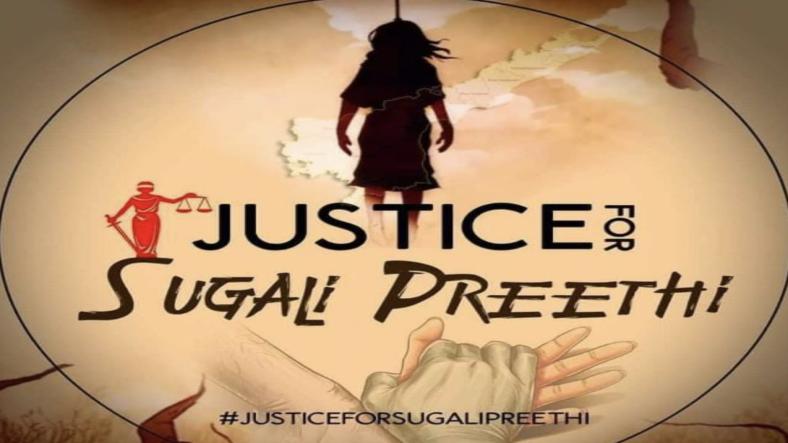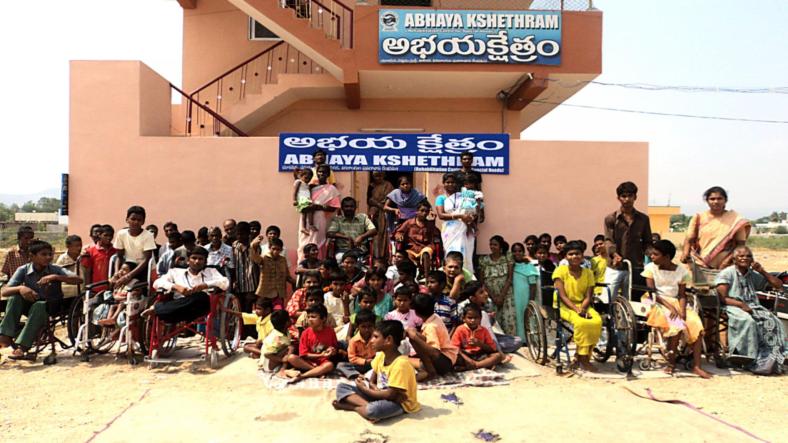Kurnool, Andhra Pradesh –
What began as a tragic death inside a school hostel in 2017 has evolved into one of Andhra Pradesh’s most haunting cases of alleged sexual assault, institutional failure, and delayed justice. The Sugali Preethi case continues to expose the cracks in India’s system of investigation and accountability.
The Incident – August 2017
On the night of August 18, 2017, Sugali Preethi, a 16-year-old Class 10 student of Kattamanchi Ramalinga Reddy Residential School in Kurnool district, was found hanging from a ceiling fan in her hostel room.
The school management claimed suicide. But her parents — Mr. Raju Naik and Mrs. Parvathi, members of a Scheduled Tribe community — immediately alleged sexual assault and murder, accusing the school correspondent V. Janardhan Reddy and his sons Diwakar Reddy and Harsha Vardhan Reddy.
The FIR No. 221/2017 was filed at Kurnool Taluka Police Station under sections of rape (IPC 376) and murder (IPC 302), along with provisions of the POCSO Act.
However, despite the gravity of the allegations, the accused were released on bail within eight days, reportedly due to their political connections and local influence.
Early Investigation and Irregularities
Forensic reports reportedly detected multiple male DNA traces on the victim’s body and clothes, contradicting the school’s claim of suicide. Yet, the local investigation allegedly mishandled evidence — the hostel room was not sealed immediately, and the autopsy was delayed.
Human rights organizations, including the AP Girijana Sangham and several women’s rights groups, staged protests demanding a CBI probe. The case was taken to the Andhra Pradesh High Court, with the parents seeking independent investigation.
Political Promises and Broken Assurances
In February 2020, the then YSRCP government issued G.O. No. 37, recommending a CBI investigation. The promise was welcomed but never implemented.
When public anger rose again, Pawan Kalyan, then a prominent political leader and now the Deputy Chief Minister of Andhra Pradesh, visited the family in Kurnool and promised a fresh probe and justice.
The victim’s mother, Parvathi, later stated in several media interviews that “Pawan Kalyan promised justice in front of cameras, but no one ever returned to us once the cameras left.”
Activists allege that between 2020 and 2024, no effective investigation was carried out. The CBI initially expressed its inability to take up the case in February 2025, citing lack of resources and jurisdictional scope.
Revival Under the New Government
In September 2025, under the Chandrababu Naidu-led TDP–JSP coalition government, a new Government Order (G.O. No. 114/2025) officially transferred the Sugali Preethi case to the Central Bureau of Investigation.
Deputy CM Pawan Kalyan, facing renewed criticism from civil groups, reiterated that “no one will be spared, regardless of influence,” but the family remains cautious, saying “We have heard these words for eight years.”
The CBI has reportedly re-registered the case under its Hyderabad unit in October 2025, calling for all earlier files, evidence, and forensic materials to be resubmitted.
The Family’s Struggle
For eight years, the family has lived under constant intimidation. The victim’s mother, Parvathi, continues to demand that the school be blacklisted and that all witnesses who retracted statements under pressure be re-examined.
Several tribal and Dalit organizations have joined her protest, claiming that “justice delayed for a tribal girl is justice denied for an entire community.”
Patterns in Similar Cases
The Sugali Preethi case is not an isolated tragedy. India has seen several hostel and institutional deaths where investigations were delayed or derailed:
- Delta Meghwal Case (2016, Rajasthan) – A 17-year-old Dalit student was found dead in a hostel tank after alleged rape. Convictions came five years later, only after relentless public pressure.
- Aarushi Talwar Case (2008, Noida) – Despite national attention and a CBI probe, contradictory evidence led to acquittals and no definitive closure.
- Fathima Latheef Case (2019, IIT Madras) – Allegations of harassment were raised, but the case stalled without conclusive outcomes.
Experts note that political interference, poor evidence handling, and delays in forensic analysis are recurring features in such cases — especially when the accused are powerful or well-connected.
Speculation and Systemic Issues
Legal analysts believe that the initial missteps in 2017 may have permanently weakened the case. Unsealed evidence, early bail, and shifting political priorities allowed the accused to remain free.
Social activists speculate that “missing CCTV footage” and “pressure on police officers” prevented early breakthroughs.
A retired senior CBI officer, speaking anonymously, stated:
“By the time CBI takes up such cases, vital traces are gone. We end up rebuilding an investigation from ashes.”
Public Reaction and Ongoing Pressure
Across Andhra Pradesh, hashtags like #JusticeForSugaliPreethi and #CBIForPreethi trend periodically whenever there is a political statement.
Student organizations and civil rights groups continue to demand:
- Public release of investigation status reports.
- Accountability for officers who delayed or mishandled evidence.
- Protection for the victim’s family and witnesses.
The Road Ahead
As of October 2025, the CBI investigation is officially active. Officers from the Hyderabad zone have begun reviewing prior case diaries and forensic reports.
However, legal experts warn that without fresh forensic reconstruction or new witness testimony, conviction may remain elusive.
Lessons and Reflections
The Sugali Preethi case exposes a harsh truth: justice in India often depends on persistence rather than process.
Eight years after her death, the family’s wait continues — not for sympathy, but for accountability.
As one activist put it:
“If a 16-year-old girl’s death inside a government-aided school cannot find justice even after eight years, what message are we sending to every other girl in this country?”
Conclusion
The story of Sugali Preethi is more than a criminal case — it is a mirror to systemic apathy. Whether the CBI’s renewed probe in 2025 will finally break the cycle of neglect remains uncertain.
For now, her name stands as a symbol — of courage, grief, and the unending fight for justice.
Thanks for reading the article, read out articles for more such articles.










![Dell [Smartchoice] Core i3-1215U, 12th Gen (8GB RAM/512GB SSD/FHD/Window 11/MS Office' 21/15"(38 cm)/15 Month McAfee/Black/1.48kg Laptop Dell [Smartchoice] Core i3-1215U, 12th Gen (8GB RAM/512GB SSD/FHD/Window 11/MS Office' 21/15"(38 cm)/15 Month McAfee/Black/1.48kg Laptop](https://m.media-amazon.com/images/I/61QXAqq9OhL._SX679_.jpg)





